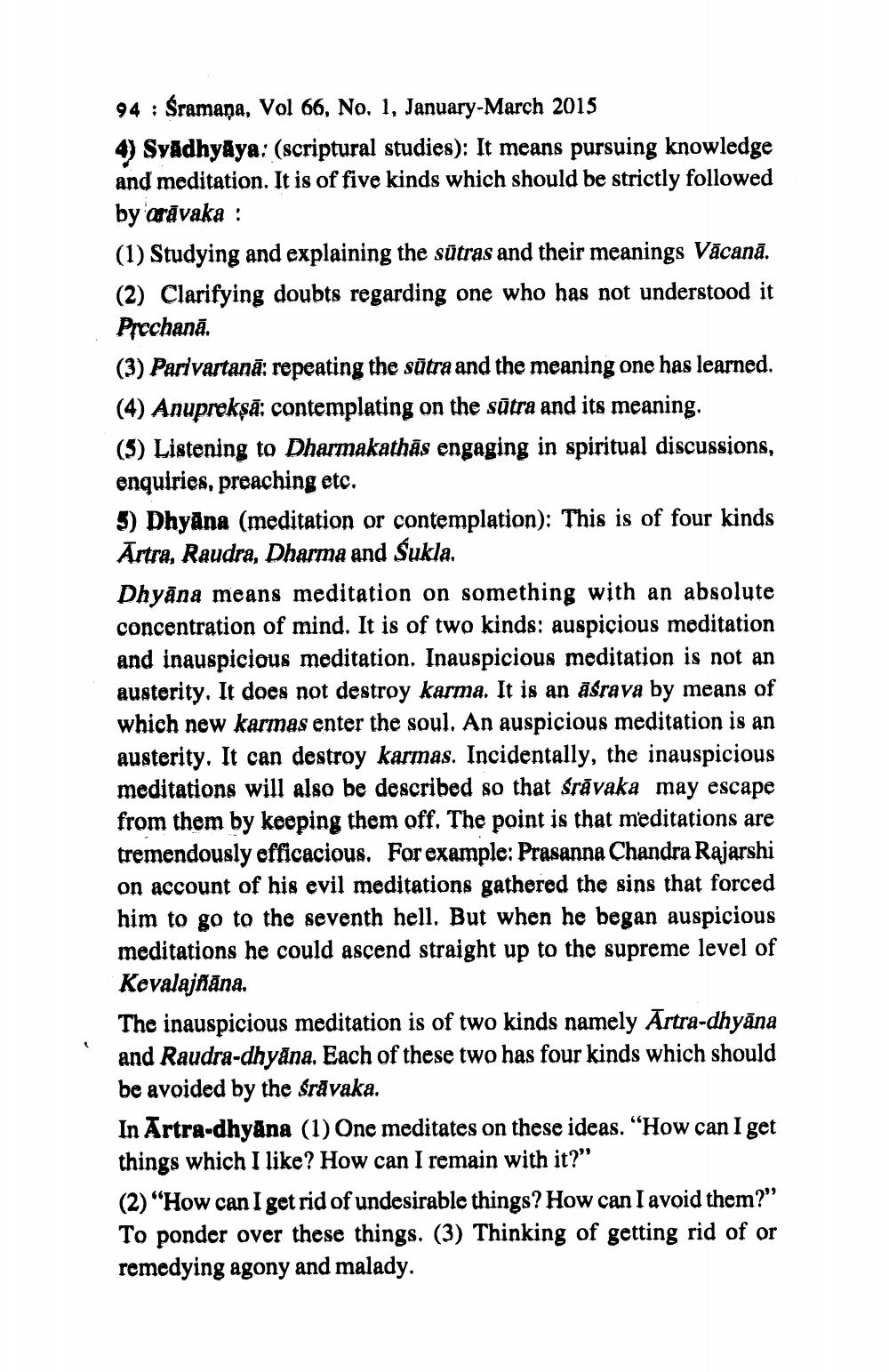________________
94 : Sramaņa, Vol 66, No. 1, January-March 2015 4) SyĀdhyāya: (scriptural studies): It means pursuing knowledge and meditation. It is of five kinds which should be strictly followed by crāvaka : (1) Studying and explaining the sūtras and their meanings Vācanā. (2) Clarifying doubts regarding one who has not understood it Prechanā. (3) Parivartanā: repeating the sūtra and the meaning one has learned. (4) Anuprekṣā: contemplating on the sūtra and its meaning. (5) Listening to Dharmakathās engaging in spiritual discussions, enquiries, preaching etc. 5) Dhyāna (meditation or contemplation): This is of four kinds Artra, Raudra, Dharma and Sukla. Dhyāna means meditation on something with an absolute concentration of mind. It is of two kinds: auspicious meditation and inauspicious meditation. Inauspicious meditation is not an austerity. It does not destroy karma. It is an asrava by means of which new karmas enter the soul. An auspicious meditation is an austerity. It can destroy karmas. Incidentally, the inauspicious meditations will also be described so that śrāvaka may escape from them by keeping them off. The point is that meditations are tremendously efficacious. For example: Prasanna Chandra Rajarshi on account of his evil meditations gathered the sins that forced him to go to the seventh hell. But when he began auspicious meditations he could ascend straight up to the supreme level of Kevalajñāna. The inauspicious meditation is of two kinds namely Artra-dhyāna and Raudra-dhyāna. Each of these two has four kinds which should be avoided by the śrāvaka. In Artra-dhyāna (1) One meditates on these ideas. “How can I get things which I like? How can I remain with it?" (2) “How can I get rid of undesirable things? How can I avoid them?" To ponder over these things. (3) Thinking of getting rid of or remedying agony and malady.




